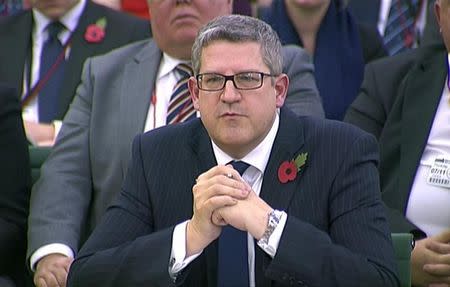UK MI5 spy chief calls for more powers to counter terror threat

LONDON (Reuters) - The head of Britain's domestic spy service, MI5, called on Thursday for greater powers for the security agencies to keep pace with technology used by militants in the first live media interview by a British intelligence chief. Prime Minister David Cameron's government plans new laws later this year to bolster the capabilities of spies and police, but faces a battle from privacy and human rights campaigners who say such measures represent an assault on freedoms. In an interview with BBC radio, MI5 Director General Andrew Parker said Britain was facing its most serious terrorism threat since the Sept. 11, 2001, attacks on the United States and had foiled six attempted attacks in the last year. "It represents a threat which is continuing to grow largely because of the situation in Syria and how that affects our security," Parker said. In August last year, Britain raised its terrorism threat level to "severe", the second highest stage which means a militant attack is considered highly likely. It was largely due to the danger the authorities say is posed by Islamic State fighters and Britons who have joined them. Intelligence chiefs and Cameron have argued for years that Britain needs to give the security agencies greater powers to address the threat and prevent another attack on the scale of the suicide bombings in London in 2005 when four British Islamists killed 52 people. But moves to bolster surveillance have attracted widespread opposition, including from within Cameron's Conservative party, fuelled in part by former U.S. spy contractor Edward Snowden who has suggested U.S. and British spies are conducting mass monitoring of communications. Parker said it was becoming harder for the security agencies to prevent attacks by militants who were able to exploit technological advances to hide their plans from the authorities. "If we're to find and stop the people who mean us harm, MI5 and others need to be able to navigate the Internet to find terrorist communication," Parker said. "We need to be able to use data sets so we can join the dots to be able to find and stop the terrorists who mean us harm before they are able to bring their plots to fruition." (Reporting by Michael Holden, editing by Elizabeth Piper)

